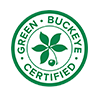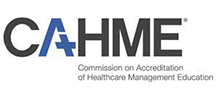Environmental Health Sciences: Course Descriptions
| Course Number |
|---|
PUBHEHS 3193Credits: 1‐6
Individual Studies in Environmental Health SciencesIndividual studies in Environmental Health Sciences focusing on Prerequisites: Permission of instructor
Learn more
|
PUBHEHS 3310Credits: 3
Current Issues in Global Environmental HealthFundamental concepts and principles of environmental health are presented through a critical review and discussion of current issues in global environmental health. Prerequisites: none
Learn more
|
PUBHEHS 3320Credits: 3
Fundamentals of Environmental Health Risk AssessmentThe scientific process used by governmental agencies to evaluate public health threats due to environmental contamination. An orientation to the fundamental and applied components of risk assessment including: hazard identification, toxicology/dose‐response, exposure assessment, and risk Prerequisites: none
Learn more
|
PUBHEHS 3330Credits: 3
Global Pandemics and Public HealthThis course summarizes major global pandemics, including communicable (such as COVID-19) and noncommunicable (such as obesity) diseases that are current and from recent history, emphasizes public health threat detection and response, reviews related research articles from high impact journals, and provides a platform so that critical and major questions can be discussed and debated. Prerequisites: None
Learn more
|
PUBHEHS 4325Credits: 3
Climate Change and Human HealthRecognize current controversies about climate change, summarize the evidence about climate change on human health, and identify major human diseases associated with climate change. This course is PUBHEHS 5320 and converted to PUBHEHS 4325 (undergraduate section) as of Spring 2021. Prerequisites: None
Learn more
|
PUBHEHS 4330Credits: 3
Environmental EpigeneticsEpigenetics is an exciting and rapidly growing field of science, with increasing applications in molecular biology, epidemiology and environmental science. Epigenetics is the study of biological mechanisms that will influence exposed host gene expression without altering DNA sequences. Epigenetic patterns of individuals can change over time by different environmental influences that explain a link between nature and nurture. For example, how identical twins with the same genetically information show different susceptibilities to disease. One of the mechanisms is changes in DNA methylation. The course will provide a solid foundation in epigenetics and introduce the basic mechanisms of epigenetic control of gene expression, major laboratory methods, and research applications of in molecular biology, epidemiology, and the environmental sciences. Prerequisites: Biology 1113 or 1114, or permission of instructor
Learn more
|
PUBHEHS 4530Credits: 3
Food Safety and Public HealthPrinciples and practice of food safety; transmission, inactivation and control of foodborne pathogens, hazards, toxins and allergens; risk assessment, sanitation, and pest control in foods. Prerequisites: Microbiology 4100 or 4000; or permission from the instructor. Cross listed in FDSCTE 4536
Learn more
|
PUBHEHS 5315Credits: 3
Principles of ToxicologyFundamentals of dose‐response, exposure, disposition and biotransformation of chemicals in mammalian systems; actions Prerequisites: Undergraduate section: Minimum Junior Standing or permission of instructor.
Learn more
|
PUBHEHS 5325Credits: 3
Principles of Occupational Health SciencePrinciples and practice of occupational health, including, among other topics, a history of the discipline and in‐depth consideration of occupational hazards and risks, including Prerequisites: Undergraduate section: Minimum Junior Standing or permission of instructor.
Learn more
|
PUBHEHS 5335Credits: 3
Ecology of Infectious DiseasesThis course provides an introduction to the ecology of infectious diseases. We will investigate infectious disease transmission and control in single- and multi-host systems and for vector-borne diseases. Prerequisites: Biology 1101, 1113 or equivalent course or permission of instructor.Cross listed with ENR 5335
Learn more
|
PUBHEHS 5340Credits: 3
Air Contaminants and Public HealthAir is essential for human survival, and the degradation of its quality has significant impacts on human health and the environment. Prerequisites: None
Learn more
|
PUBHEHS 5345Credits: 3
Modeling Transmission and Control of Infectious Diseases in Humans and AnimalsProvides an introduction to applied infectious disease modeling. Students will learn how the susceptible, infected, removed (SIR) model can represent infectious disease transmission. This course is cross listed with VETPREV 8830. Prerequisites: Biology 1101, 1113 or equivalent; or permission of instructor.
Learn more
|
PUBHEHS 5395 / ENVENG 5195Credits: 3
Engineering Design for Environmental healthStudents in this course will learn how to incorporate health information into the engineering design process. This material complements risk assessment by focusing on the design of engineering systems. Course will discuss balancing financial, health, performance, and other considerations. Quantitative analysis will be conducted in soil, water, air, buildings, and occupational health scenarios. Prerequisites: Math 1151,1161.01, or 1161.02, and Chem 1210 or 1250, and enrollment in the CivilEn, EnvEng, or PubHEHS major program; or grad standing; or permission of instructor.
Learn more
|
PUBHEHS 6300Credits: 1.5
Environmental Health Science Issues in Health AdministrationIn this course, we will consider environmental health sciences Prerequisites: Enrollment in HSMP‐MHA, or permission of instructor
Learn more
|
PUBHEHS 6310Credits: 3
Principles of Environmental Health ScienceSurvey of environmental influences on human health and strategies for prevention considering source emissions, environmental fate and transport, human exposure, dose, and Prerequisites: Not open to students with credit for 731.
Learn more
|
PUBHEHS 6315Credits: 3
Advanced Environmental Health ScienceSurvey of environmental influences on human health and strategies for prevention considering source emissions, environmental fate and transport, human exposure, dose, and biological effects. Prerequisites: Enrollment in the EHS program and Grad standing.
Learn more
|
PUBHEHS 6320Credits: 3
Global Health and Environmental MicrobiologyFundamentals and emerging issues of health significant microorganisms (bacteria, viruses, protozoa) from water, air, soil and food, and their sources, transmission routes, Prerequisites: Not open to students with credit for 730. Cross listed in FdScTe
Learn more
|
PUBHEHS 6325Credits: 3
Climate Change and Human HealthGlobal climate change may have considerable direct and indirect impacts on human health. This course will be based on scientific facts, focusing on both natural phenomena and anthropogenic activities, with emphasis on associations between disease initiation and progression in humans. Formerly listed as PUBHEHS 5320. Prerequisites: None
Learn more
|
PUBHEHS 6330Credits: 3
Environmental EpigeneticsEpigenetics is an exciting and rapidly growing field of science, with increasing applications in molecular biology, epidemiology and environmental science. Epigenetics is the study of biological mechanisms that will influence exposed host gene expression without altering DNA sequences. Epigenetic patterns of individuals can change over time by different environmental influences that explain a link between nature and nurture. For example, how identical twins with the same genetically information show different susceptibilities to disease. One of the mechanisms is changes in DNA methylation. The course will provide a solid foundation in epigenetics and introduce the basic mechanisms of epigenetic control of gene expression, major laboratory methods, and research applications of in molecular biology, epidemiology, and the environmental sciences. Prerequisites: Prereq: Credit for college level Biology (or related discipline) course, or permission of instructor
Learn more
|
PUBHEHS 6340Credits: 3
Molecular Techniques for Environmental Health SciencesThis course provides students with a practical, "hands-on" introduction to a variety of techniques applied to the study of living systems at the molecular level to address fundamental public health concerns. Prerequisites: None
Learn more
|
PUBHEHS 6390Credits: 3
Major Human Diseases in Global Public HealthPublic health is focused on preventing illnesses and injuries or intervening to decrease the impact to populations of people. Emphasize on basic physiology, pathophysiology, and clinical evaluation of major human diseases that have significant global public health impact epidemiologically, politically, and economically with a focus on disease causes and prevention. Formerly PUBHEHS 7390 Prerequisites: none
Learn more
|
PUBHEHS 7193Credits: 1‐6
Individual Studies in Environmental Health SciencesIndividual studies in Environmental Health Sciences focusing on Prerequisites: none
Learn more
|
PUBHEHS 7194Credits: 1‐3
Group Studies in Environmental Health SciencesGroup studies in Environmental Health Sciences. Prerequisites: none
Learn more
|
PUBHEHS 7350Credits: 1‐3
Special Topics in Environmental Health SciencesOpportunity for students to pursue a particular environmental health interest that is not available through existing topical Prerequisites: none
Learn more
|
PUBHEHS 7360Credits: 3
Water Contamination: Sources and Health ImpactTopics focus on understanding the sources, the transport mechanisms and the fate of microbial and chemical contaminants in water, human exposure risks, tracking methods, linking to other environmental matrices and the public health impacts. Prerequisites: Undergraduate-level biology or permission of instructor
Learn more
|
PUBHEHS 7365Credits: 3
Environmental and Human Health Risk AssessmentStudents will learn about the development of the formal risk assessment process, its role in environmental and public health regulation in the United States and the four fundamental steps in a risk assessment. Students will learn about the interface between the risk assessment and risk management process. Prerequisites: Not open to students with credit for 831.
Learn more
|
PUBHEHS 7375Credits: 3
Quantitative Microbial Risk Analysis ModelingThis course will outline the fundamental sciences and their application in microbial risk modeling. Prerequisites: Graduate level statistics or permission of instructor
Learn more
|
PUBHEHS 7380Credits: 3
Exposure Science Monitoring Techniques IThis course will discuss the principles and practices of human exposure sampling of contaminants in environmental and biological matrices with special emphasis on the air matrix. In addition, students will be introduced to analytical techniques and instrumentation for air contaminants in the course. Prerequisites: none
Learn more
|
PUBHEHS 7382Credits: 3
Exposure Science Monitoring Techniques IIThis course will emphasize the principles and practices of human exposure sampling and analysis of contaminants in air, water and soil, as well as analysis of biological specimens (i.e. saliva, urine, exhaled air, blood) for markers of exposure. The course will focus on field sampling, and laboratory analytical instrumentation and methods. Prerequisites: Graduate standing or permission of instructor.
Learn more
|
PUBHEHS 7899Credits: 1‐3
Seminar in Environmental Health SciencesSeminar on topics that are relevant to students enrolled in programs in the division of environmental health sciences. Prerequisites: none
Learn more
|
PUBHEHS 8340Credits: 3
Molecular Techniques for Environmental Health SciencesPractical introduction to molecular techniques, as applied to Prerequisites: Not open to students with credit for 835.
Learn more
|
PUBHEHS 8899Credits: 1‐3
Doctoral Seminar in Environmental Health SciencesDoctoral level seminar on topics that are relevant to students enrolled in the PhD program in health environmental health Prerequisites: none
Learn more
|






